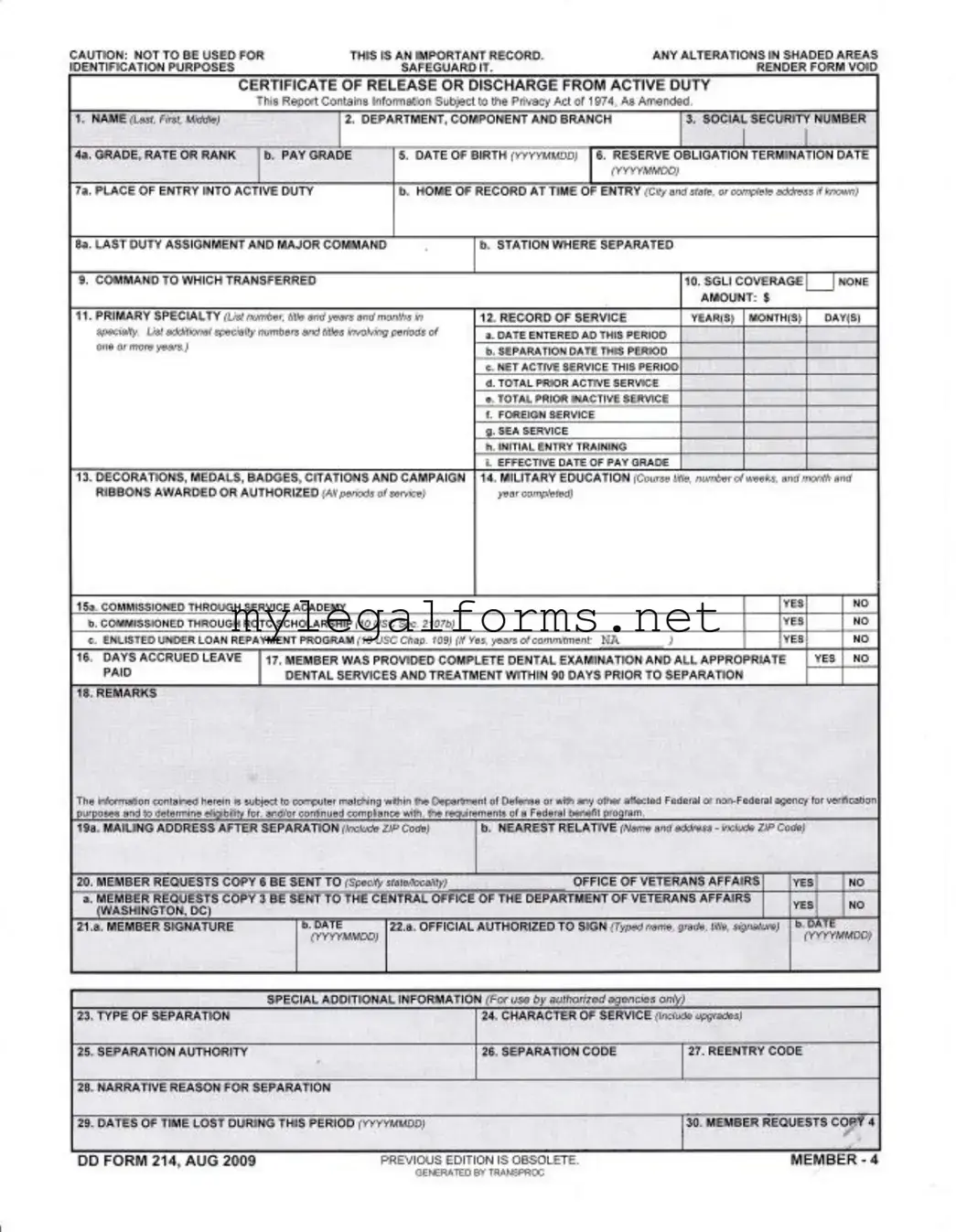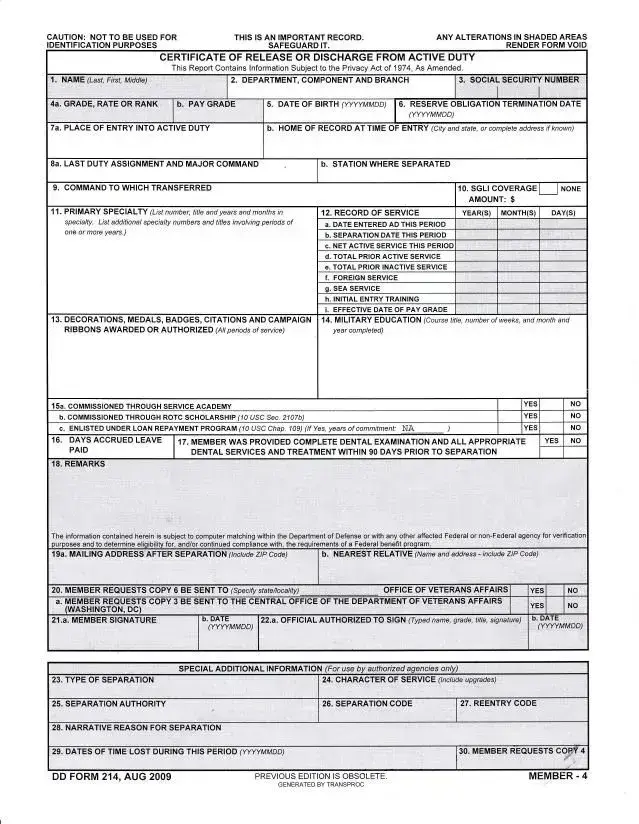Completing the DD Form 214 is a critical task for service members transitioning from active duty. However, several common mistakes can lead to complications or delays in processing. Awareness of these pitfalls can help ensure that the form is filled out accurately and efficiently.
One frequent error is incorrect personal information. Service members often miswrite their names, social security numbers, or dates of birth. Such inaccuracies can cause significant delays in processing and may result in complications when applying for benefits.
Another mistake involves failing to provide complete service history. Sections detailing prior active service, foreign service, and sea service must be filled out accurately. Omitting or inaccurately reporting this information can affect eligibility for certain benefits and entitlements.
Many individuals neglect to check the shaded areas of the form. Any alterations in these areas render the form void. It is crucial to follow the instructions carefully to avoid this issue.
Additionally, some service members overlook the requirement to report their last duty assignment and major command. This information is essential for accurate record-keeping and benefits processing.
Inaccurate reporting of the separation date is another common mistake. This date must reflect the actual date of separation from active duty. Errors here can lead to confusion regarding benefits eligibility and timelines.
Some individuals fail to indicate their mailing address after separation. Providing an updated address ensures that important documents and benefits information reach the service member without delay.
Another area often overlooked is the section regarding dental examination and services. Members must indicate whether they received a complete dental examination prior to separation. This detail is essential for maintaining health records.
Service members sometimes neglect to sign the form or provide the date of their signature. An unsigned form is invalid and cannot be processed, leading to unnecessary delays.
Lastly, not requesting copies of the DD Form 214 can hinder access to vital records in the future. Members should ensure they request copies to keep for their records and for any future benefit applications.
By avoiding these common mistakes, service members can facilitate a smoother transition process and ensure that their benefits and entitlements are properly documented and accessible.


